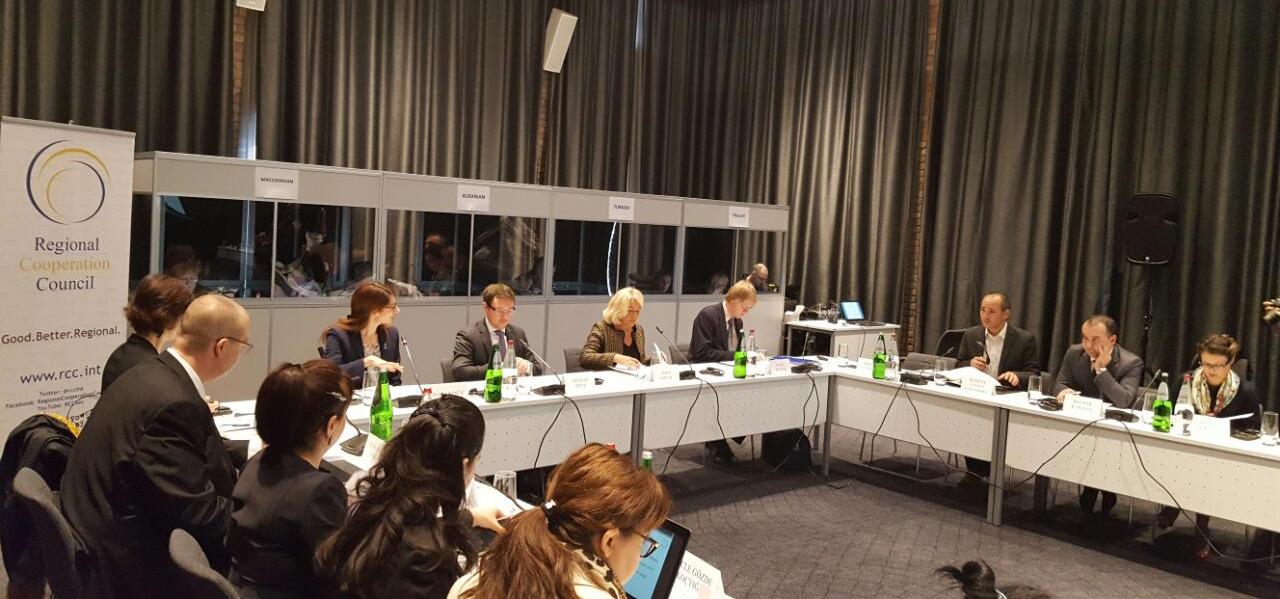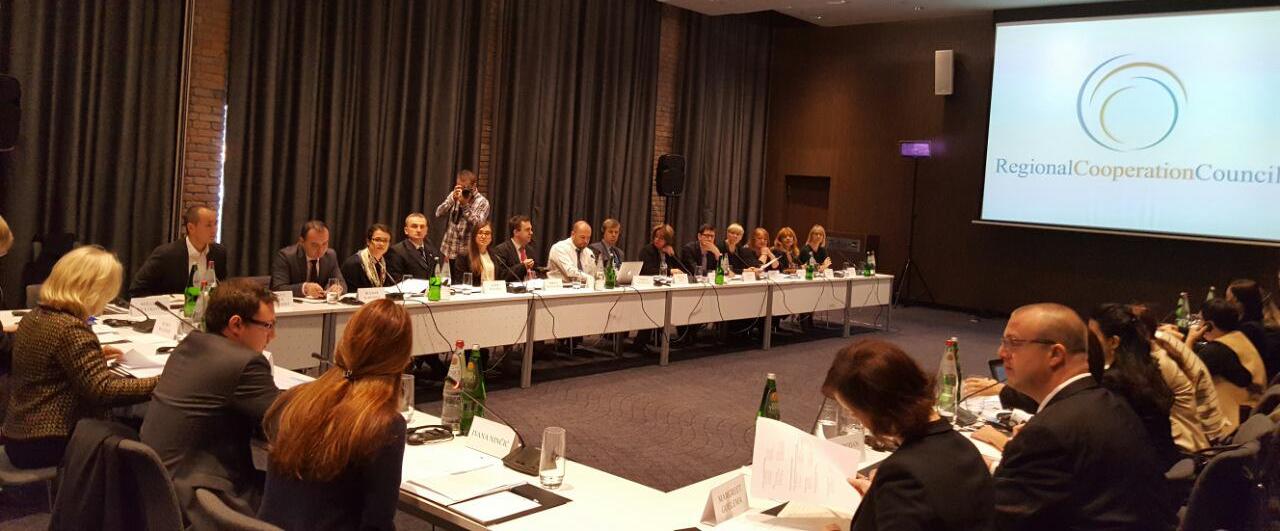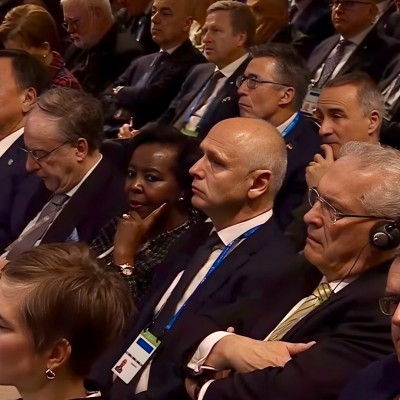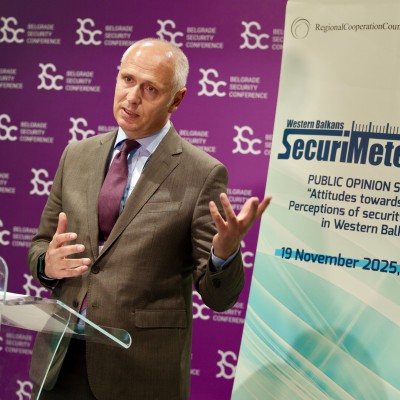Judicial training institutions from Western Balkans and Turkey mapped the most important projects in the region and identified common needs as grounds for future cooperation
10 November 2016

Judicial training institutions from Western Balkans and Turkey mapped the most important projects in the region and identified common needs as grounds for future cooperation at Coordination meeting in Belgrade, 10 November 2016 (Photo: RCC/Elvira Ademovic)

Representatives of the Ministries of Justice and Judicial Training Institutions (JTI) of Western Balkans and Turky gathered at the Coordination meeting under the auspices of the Regional Cooperation Council in Belgrade on 10 November 2016 (Photo: RCC/Elvira Ademovic)
Sarajevo/Belgrade – Representatives of the Ministries of Justice and Judicial Training Institutions (JTI) of Western Balkans and Turkey gathered at the Coordination meeting under the auspices of the Regional Cooperation Council (RCC) to map the most important projects in the area of judicial training in the region and to identify both the common needs and possibilities of using the already tested good practices and results in their future activities. The meeting was held in Belgrade today.
The meeting gathered around 30 participants from the region's justice ministries, judicial training institutions, RCC as well as representatives of the EU Delegation in Serbia and European Commission's (EC) Directorate-General for Justice and Consumers from Brussels who addressed the meeting participants expressing support to the RCC’s activities in enhancing regional cooperation in the field of justice and highlighted importance of both regional cooperation and the rule of law from the EU enlargement perspective, as pointed out in the findings of the annual Enlargement Package 2016: 'Credible enlargement process key to driving transformation and anchoring stability in South East Europe' adopted by the European Commission the day before.
The
participants also proposed measures to address the obstacles to optimal use of outputs
produced by judicial training projects, discussed results, good practices and
lessons learned from the such projects, exchanged good practices and
achievements made over the implementation phases of these projects, discussed
possibilities for achieving better synergy concerning the projects' results and
facilitated regional dimension for exchange of information among judicial training
institutions.
Rule of Law in the EU Enlargement process
„In the rule of law area, overall, there have been efforts to modernise legal frameworks and infrastructure. However, most countries continue to face problems of efficiency and lack of sufficient independence and accountability of the judiciary“, reads the 2016 Enlargement Package.
The
EC’s and consequently RCC’s approach of addressing ‘fundamentals first’ found
its strong argument in the fact that – according to the Balkan Barometer 2016
survey conducted by RCC towards the end of 2015 – approximately 74% of
respondents tend to disagree or totally disagree that the law is applied and
enforced effectively, while 83% tend to disagree or totally disagree that the
law is applied to everyone equally, which basically defines the Rule of Law.
These worrying high percentages explicitly show the urgent need to support the
SEE region in the field of judiciary.
RCC regional action
One of the three objectives of the RCC's Strategy and Work Programme 2017-2019 (SWP 2017-2019) in justice is to support participation of legal practitioners in South East Europe (SEE) in regional judicial training activities through the use of all available resources at local, national, regional and European level through SEE Judicial Training Institutions Network that was created under RCC lead April 2016.
RCC recognised ‘fundamentals first’– meaning the rule of law, economic governance and public administration reform – as an important requirement by EC in the accession process. Quality of institutions, both governmental and judicial, is a key factor for the well-being of economies and their citizens.
„It is one of the reasons we organised numerous meetings in the past year with the members of the Working Group on Justice and stakeholders, in this case, directors of the JTI from WB and Turkey, aiming to identify areas where regional cooperation in justice dimension could be beneficial for judiciaries in the accession process“, explained Ivana Goranic, Rule of Law Expert - Justice and Home Affairs of the RCC, adding that at the same time, it would be very useful to enable exchange of experiences, practices and lessons learned with the EU member states.
The SEE Judicial Training Institutions Network is to enable peer support in matters related to training of judges and prosecutors and generate better understanding of different judicial systems in the region, challenges they are facing and the way they are addressed.



